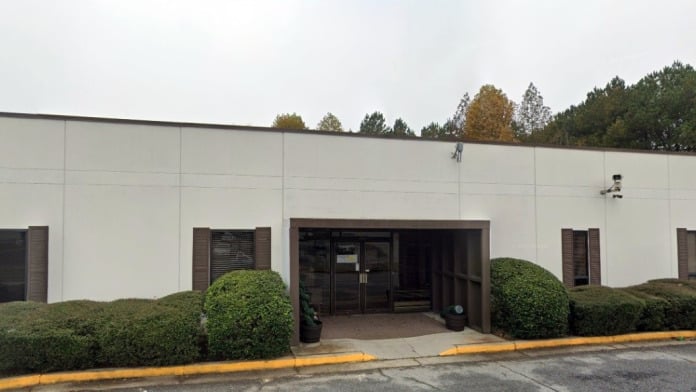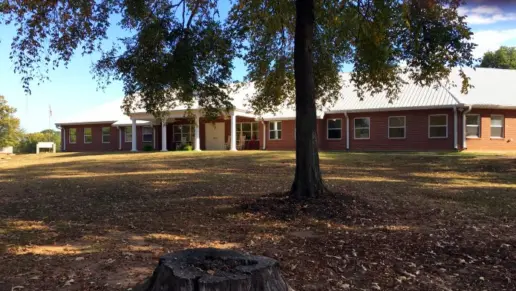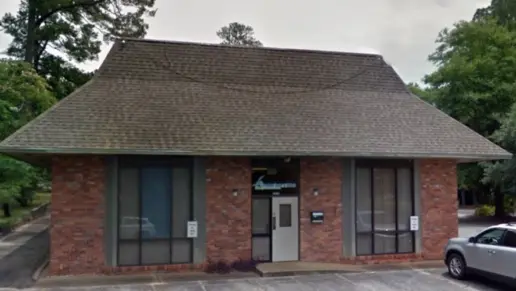About Claratel Behavioral Health — Clifton Springs
Formerly known as DeKalb Community Service Board, Claratel Behavioral Health -- Clifton Springs is a dual diagnosis addiction treatment center in Decatur, Georgia. Their services include detox, medication assisted treatment, inpatient, and outpatient care. They accept Medicare, Medicaid, Amerigroup, Peach State, CareSource and Peach Care for Kids insurance. They are accredited by the Commission on Accreditation of Rehabilitation Facilities, or CARF.
Operating primarily as a behavioral health clinic, this center dabbles in numerous aspects of mental and physical wellbeing. They have crisis management, services for children and teens, psychiatric care and treatment for drug and alcohol addiction. Patients seeking addiction treatment have the option of staying on site or receiving their care on an outpatient basis. Either way, they will have access to a number of treatment options and modalities.
Generally, the first step in treatment at this center will be detox. Patients will rid their bodies of any harmful substances or work to get rid of any dependencies, with the help of medical staff. Doctors on site will monitor the patients to make sure that they’re safe and handling treatment well.
Additionally, patients can access medication assisted treatment for opioid or alcohol addiction. Afterward, patients can begin therapy and psychiatric treatment to treat the underlying causes of addiction. Through this method, clients can work through any mental health issues or behaviors that may be key to their recovery.
This center has generally positive feedback from patients, mostly about the doctors. Clients seem to love the staff in particular, which is crucial when so much of the recovery process is interpersonal. This center seems incredibly professional, caring, and a great choice for those in need of addiction treatment.
Gallery

Location
Accepted Insurance
Other Forms of Payment
Private insurance refers to any kind of healthcare coverage that isn't from the state or federal government. This includes individual and family plans offered by an employer or purchased from the Insurance Marketplace. Every plan will have different requirements and out of pocket costs so be sure to get the full details before you start treatment.
Self-pay involves paying for treatment out of your own pocket. You can use savings or credit, get a personal loan, or receive help from family and friends to fund your treatment. If you don't have insurance or your insurance plan doesn't cover a specific program, self-pay can help ensure you still get the care you need.
Financial aid can take many forms. Centers may have grants or scholarships available to clients who meet eligibility requirements. Programs that receive SAMHSA grants may have financial aid available for those who need treatment as well. Grants and scholarships can help you pai for treatment without having to repay.
Medicare is a federal program that provides health insurance for those 65 and older. It also serves people under 65 with chronic and disabling health challenges. To use Medicare for addiction treatment you need to find a program that accepts Medicare and is in network with your plan. Out of pocket costs and preauthorization requirements vary, so always check with your provider.
Medicaid is a state based program that helps lower-income individuals and families pay for healthcare. Medicaid covers addiction treatment so those enrolled can use their coverage to pay for rehab. When a program accepts Medicaid the client often pays very little or nothing out of their own pocket.
Addiction Treatments
Levels of Care
Treatments
The goal of treatment for alcoholism is abstinence. Those with poor social support, poor motivation, or psychiatric disorders tend to relapse within a few years of treatment. For these people, success is measured by longer periods of abstinence, reduced use of alcohol, better health, and improved social functioning. Recovery and Maintenance are usually based on 12 step programs and AA meetings.
A quality drug rehab in Georgia can help you overcome addiction. This environment is designed to help you address the complex issues contributing to drug dependence. The goal of treatment is to give you the tools you need to make a full recovery.
Many of those suffering from addiction also suffer from mental or emotional illnesses like schizophrenia, bipolar disorder, depression, or anxiety disorders. Rehab and other substance abuse facilities treating those with a dual diagnosis or co-occurring disorder administer psychiatric treatment to address the person's mental health issue in addition to drug and alcohol rehabilitation.
A combined mental health and substance abuse rehab has the staff and resources available to handle individuals with both mental health and substance abuse issues. It can be challenging to determine where a specific symptom stems from (a mental health issue or an issue related to substance abuse), so mental health and substance abuse professionals are helpful in detangling symptoms and keeping treatment on track.
Programs



Clinical Services
Family therapy involves a whole family or several family members, all meeting with a therapist. This type of therapy can be helpful if a family is having problems getting along and/or communicating effectively. It can also be used when one family member has a problem and family relationships may be contributing to or maintaining the problem and/or if family members want to learn how to best support a family member diagnosed with mental illness.
Led by a therapist, group involves several individuals coming together to help themselves and each other in a structured clinical setting. Groups meet at regularly scheduled days and times and typically last between one to two hours. Groups are generally structured around an identified illness, issue or theme, but session topics vary according to the needs of the group. Participation in a specific group is determined by client need and appropriateness for group participation. Clients are not limited to groups held at their assigned center. Group has been shown to be a highly effective form of therapy and with certain illnesses or issues can be more effective than individual therapy. For example, group treatment is the preferred method of treatment for substance related issues.
With a focus on improving the overall mental health of the client, individual therapy involves a therapist and client working together to move the client towards his or her identified goal. Our therapists focus on using the evidence-based intervention most appropriate to fit the needs of the issue and individual. Frequency of appointments is determined on the presenting issue and goals of the client.
Trauma therapy addresses traumatic incidents from a client's past that are likely affecting their present-day experience. Trauma is often one of the primary triggers and potential causes of addiction, and can stem from child sexual abuse, domestic violence, having a parent with a mental illness, losing one or both parents at a young age, teenage or adult sexual assault, or any number of other factors. The purpose of trauma therapy is to allow a patient to process trauma and move through and past it, with the help of trained and compassionate mental health professionals.
Accreditations

The Commission on Accreditation of Rehabilitation Facilities (CARF) is a non-profit organization that specifically accredits rehab organizations. Founded in 1966, CARF's, mission is to help service providers like rehab facilities maintain high standards of care.
CARF Accreditation: Yes
Contact Information
3110 Clifton Springs Road
Suite B
Decatur, GA 30034





